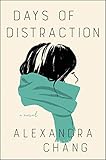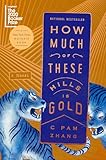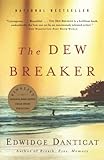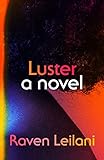I knew this year was destined to be one filled with anxiety even before the pandemic began, but of course I had no idea how intense it would be or how long it would last. In March, my first novel was slated to be released. I convinced myself that I had less than three months to conquer a lifelong fear of public speaking. I was overwhelmed with imposter syndrome and what felt like a sea of the unknowable looming in front of me. My only goal in picking books to read was to find complete and total distraction. I didn’t want to think about myself at all. I didn’t want to think about the author either, and notice their machinations behind the curtain as I read. The first two novels I read this year–Bunny by Mona Awad and Follow me to Ground by Sue Rainsford–were both strange and unpredictable. I loved the satire mixed with grotesque horror in Bunny, and the beauty of Rainsford’s dark folktale. Then I read Han Kang’s The Vegetarian, which blew me away. The writing is masterful. I read it in one afternoon.
I was fortunate to have two in-person book launches before the lockdown began. My nerves were manageable and now I’m happy to have had those last moments with my closest friends and family, most of whom I haven’t seen since.



My boyfriend and I are both librarians, so once the statewide shutdown was announced, we stocked up on books and thought we’d read through quarantine. He brought home a dozen Phillip Roth novels, since our Library in Newark was in the process of building a “Phillip Roth Room” to house the author’s personal book collection and other donated artifacts from his home. He fared better than me with the “Roth Reading Challenge”; I only got through American Pastoral and then couldn’t concentrate on anything but the news. But as the prognosis for America became bleaker I went back to trying to distract myself with books. I read a mystery/thriller, Long Bright River by Liz Moore and then sped through a few other new releases this year–The Roxy Letters by Mary Pauline Lowry, which is one of the funniest books of the year, Days of Distraction by Alexandra Chang, and How Much of These Hills is Gold by C Pam Zhang.
In April, my grandfather, who lived in a nursing home in Queens, was transferred to the hospital and what followed were weeks of waiting for answers. First, did he have Covid-19 or didn’t he? It took a solid week to confirm that he did, but we were told that he was breathing on his own. Second, would he make it? He was 92. Hospital staff were overburdened and it was hard to get anyone on the phone and no one was allowed to visit just then. Eventually we learned he was on oxygen and a week later his prognosis was updated to critical. At the beginning of his third week in the hospital, while we waited for another update, my father called me at 3 am one night and told me he was having trouble breathing and asked me what he should do. Should he call an ambulance? My mother called me begging me to talk my college student sister out of going to hang out with friends. This was the year when I realized roles would shift and slowly the part of my life where I had to parent my parents would begin; I was not ready at all.

I was thinking a lot about family for obvious reasons. I read an ARC of Morgan Jerkins‘s Wandering in Strange Lands: A Daughter of the Great Migration Reclaims Her Roots, where she traces the migrations of her ancestors. When I finished I was so moved and envious of what she accomplished that I went down my own research rabbit-hole, looking into my grandfather’s past, which continues today.



My grandfather died about 20 days after he was admitted to the hospital and the decision of what to do with his remains started a mini-family feud. During this time, while I waited to hear the verdict, I reread books for comfort– Jamaica Kincaid’s At the Bottom of the River and Lucy, Michelle Cliff’s novel Abeng. I reread The Dew Breaker by Edwidge Danticat, which was one of the inspirations for my own novel, was reminded how much I love her work, and also finished her new collection Everything Inside.


My grandfather was cremated and his ashes were interred in Queens. I had been working on an essay with an editor about my grandfather before he died. Essays are not my thing and take me a long time to finish. I knew then that I’d have to scrap it and start from the beginning, that now what I’d be writing was a kind of a eulogy for a funeral that never happened. I didn’t have the words and so I read some essay collections, hoping to find them. I read Leslie Jemison’s Make it Scream, Make it Burn, and Michelle Cliff’s If I Could Write This in Fire, The Women by Hilton Als, and also reread How to Write an Autobiographical Novel by Alexander Chee, which I’d finished at the close of last year.

I’m still working on that essay. I’ve also been trying to write a second novel and been promoting my debut through virtual events. I’ve had the opportunity to be in conversation with Megan Giddings about her genre-bending novel Lakewood and Catherine Adel West about her powerful debut Saving Ruby King.
Sometimes I’ve been drained and haven’t
read anything for weeks. I shut my brain off and alternate between watching
YouTube influencers organize their closets and catching up on all the Real Housewives franchises. But it’s
still undeniable that this has been a fantastic year for new releases and even
with my brain fog, I’ve been pulled in by so many irresistible titles.

Luster by Raven Leilani and A Burning by Megha Majumdar were both so inventive and had characters whose stories got under my skin. I read both in public parks and ugly-cried so hard when I was through, that each time a different stranger asked me if I was okay.


I also finished and loved Parakeet by Marie-Helene Bertino, Such a Fun Age by Kiley Reid, Weather by Jenny Offill, The Vanishing Half by Brit Bennett, and Transcendent Kingdom by Yaa Gyasi. I had the privilege of reading the poet Jasmine Mans‘s forthcoming collection, Black Girl, Call Home, and an ARC of Leesa Cross-Smith’s wonderful second novel, This Close to Okay. I’m closing out the year by reading my MFA classmate, Robert Jones, Jr.’s stunning debut, The Prophets, which will be out in January.
More from A Year in Reading 2020
Do you love Year in Reading and the amazing books and arts content that The Millions produces year round? We are asking readers for support to ensure that The Millions can stay vibrant for years to come. Please click here to learn about several simple ways you can support The Millions now.
Don’t miss: A Year in Reading 2019, 2018, 2017, 2016, 2015, 2014, 2013, 2012, 2011, 2010, 2009, 2008, 2007, 2006, 2005
The post A Year in Reading: Maisy Card appeared first on The Millions.
Source : A Year in Reading: Maisy Card











